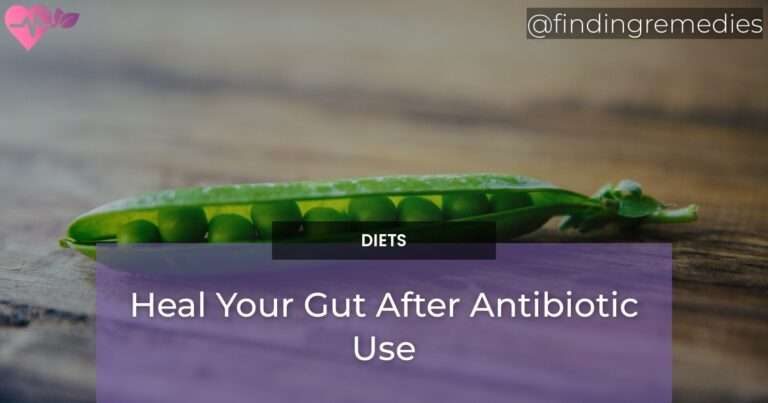Antibiotics have undoubtedly revolutionized modern medicine, providing effective treatment for bacterial infections. However, their use is not without consequences, particularly when it comes to our gut health. The gut microbiome, a delicate balance of beneficial bacteria, can be significantly disrupted by antibiotics. This disruption can lead to a range of negative effects, including an increased risk of gut infections and impaired immune system function.
Negative Effects of Antibiotics on Gut Flora
Disruption of Gut Microbiota Balance
Antibiotics are designed to target and eliminate harmful bacteria. Unfortunately, they can also unintentionally kill off beneficial bacteria that play a crucial role in maintaining a healthy gut. This imbalance in the gut microbiota can lead to digestive issues, such as diarrhea and bloating.
Increased Risk of Gut Infections
With the depletion of beneficial bacteria, harmful bacteria or pathogens can flourish, increasing the risk of gut infections. Conditions like Clostridium difficile infection, or C. diff, can occur as a result of antibiotic use, causing severe diarrhea and inflammation in the colon.
ALSO READ
Impaired Immune System Function
The gut microbiome plays a vital role in supporting immune system function. Antibiotic-induced disruption of the gut flora can impair immune responses, leaving individuals more susceptible to infections and other immune-related disorders.
Probiotic and Prebiotic Foods After Antibiotics
Importance of Probiotics for Gut Health
One of the most effective ways to restore gut health after antibiotics is by incorporating probiotic foods into your diet. Probiotics are live bacteria and yeasts that confer health benefits when consumed in adequate amounts. These beneficial microbes help replenish the gut with good bacteria and promote a healthy balance in the microbiome.
ALSO READ
Sources of Probiotic Foods
There is a wide variety of natural probiotic-rich foods. These include yogurt, kefir, sauerkraut, kimchi, and other fermented foods. These foods provide a diverse range of probiotic strains that can help rebuild the gut microbiota.
Benefits of Prebiotic Foods
Prebiotics are non-digestible fibers that serve as food for probiotics, helping them thrive and multiply in the gut. Including prebiotic foods in your diet can further support the restoration of gut health. Examples of prebiotic-rich foods include bananas, onions, garlic, and artichokes.
Prebiotic Food Options
Here are some prebiotic-rich foods you can incorporate into your gut-healing diet:
- Chicory root
- Dandelion greens
- Jerusalem artichoke
- Asparagus
- Oats
- Apples
Diet to Restore Gut Health Post-Antibiotics
Importance of a Balanced Diet
While probiotic and prebiotic foods are essential for gut health, it’s equally important to follow a balanced diet overall. A diet rich in nutrients supports the growth and maintenance of a diverse and healthy gut microbiome.
Foods to Include in a Gut-Healing Diet
When restoring gut health after antibiotics, it’s beneficial to include foods that are easy to digest and provide essential nutrients. Incorporate foods like bone broth, cooked vegetables, lean proteins, and healthy fats such as avocado and olive oil.
Foods to Avoid for Gut Health
To promote gut healing, it’s important to avoid certain foods that can disrupt the microbiome. Limit or avoid processed foods, refined sugars, artificial sweeteners, and alcohol. These can negatively impact gut health and hinder the restoration process.
Meal Planning Tips for Gut Restoration
Planning your meals can help ensure you consume a variety of gut-friendly foods. Consider batch cooking and meal prepping to have nutritious meals readily available. Focus on incorporating a diverse range of fruits, vegetables, whole grains, and lean proteins into your meal plans.
Other Strategies to Restore Gut Health
Stay Hydrated
Proper hydration is essential for maintaining optimal gut health. Drinking an adequate amount of water throughout the day helps support digestion, nutrient absorption, and the overall functioning of the gastrointestinal system.
Manage Stress Levels
Chronic stress can negatively impact gut health. Implement stress-reduction techniques such as meditation, deep breathing exercises, or engaging in activities that bring you joy to help support the healing process.
Get Regular Exercise
Regular physical activity can also contribute to a healthy gut. Exercise helps stimulate digestion and promotes bowel regularity, aiding in the restoration of gut health after antibiotics.
Consider Probiotic Supplements
In addition to consuming probiotic-rich foods, you may consider incorporating probiotic supplements into your routine. Consult with a healthcare professional to determine the most suitable probiotic strains and dosage for your specific needs.
Conclusion
Antibiotics can have a significant impact on gut health, but with the right strategies and dietary choices, it’s possible to restore and maintain a healthy gut microbiome. By incorporating probiotic and prebiotic foods, following a balanced diet, and adopting a holistic approach to gut health, you can promote optimal digestion, boost your immune system, and support overall well-being.

